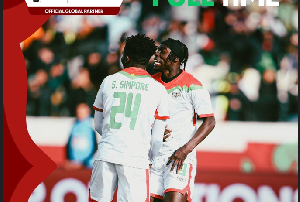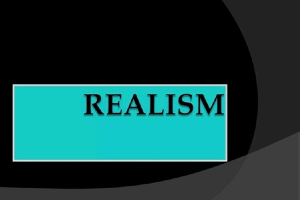The Danquah-Busia Tradition in the Politics of Ghana:
The Origins, Mission and Achievements of the New Patriotic Party
By Kantinka K. Donkoh Fordwor, Published By Unimax MacMillan
Reviewed by Prof. Yaw Twumasi
This is a 400 page book, including twenty five extremely valuable appendices. Kwame Fordwor, Kwame Wiredu (later Chief Justice of Ghana) and I met, just before independence, at the then Kumasi College of Science and Technology. We were three students with a great deal of interest in politics. We were also friends and met at a time when an intellectual climate of ideas, characterized by a new discourse in such political concepts as democracy, dictatorship, federalism, unitary system of government, human rights and the rule of law, had emerged.
The faculties at Kumasi and Legon were dominated by British expatriates who took little interest in our politics. However, there were three Oxford-educated Ghanaian academics in Kumasi i.e. A. Attoh Okine, S. K. Opoku, Dr. J. B. Danquah’s nephew, and A. B. Attafuah, the urbane Registrar of the College, who were willing to help us understand these political concepts. In class and public lectures as well as in private discussions, they made it clear to us that, after independence, Ghana would go down on one of two roads in its quest for development and stability. One road, that of Nkrumah, would lead to lack of freedoms and fundamental human rights, state socialism and dictatorship. The other, of Danquah and Busia, would take us to democracy, rule of law, respect for human dignity and a free market. We pondered over these for a while, and decided to choose the latter road and support the opposition parties. Of the three of us, the most activist was Dr. Fordwor who not only visited these lecturers more often but also managed to attend Danquah’s and Busia’s lectures in town and engage them in discussions. It goes without saying that first; Dr. Fordwor has been a loyal member of the NPP and the parties from which it has developed, a loyalty that goes back in time to the 1950’s. Second, it is political ideas and principles that attracted him to these parties. Anyone who wishes to make a reasonable assessment of the book will do well to keep these two points in mind.
This book is a sweeping study of the history of contemporary Ghana. It explores a single theme, the origins, mission and achievements of the New Patriotic Party (NPP). In fact, it is a study of the Danquah-Busia inspired movements and parties and their underlying operational principles and ideas. Dr. Fordwor’s work spans a long period of time. It is the product of years of research, drawing on historical monographs, standard works on the history and politics of Ghana, journal articles, ephemeral publications and information gleaned over the years by Dr. Fordwor’s participation in the events and party activities he writes about. He divides the hundred year history of Ghana into shorter periods. In each chapter he inserts and focuses his analysis on the political activities and ideas of Dr. J. B. Danquah and Dr. K. A. Busia with two aims in mind. First, to demonstrate that Dr. Danquah and Dr. Busia struggled to influence the direction in which Ghana was developing. Second, Dr. Fordwor seeks to identify the underlying operational ideas and principles which became the ideological foundation of the Danquah-Busia Tradition. In this way he manages to weave the various historical strands together. This approach gives the book its coherence. On display in this work are: intellectual, honesty, intelligence, hard work and political commitment coupled with respect for scholarly truth.
Dr. Fordwor discusses the formation of the United Gold Coast Convention (UGCC), and he makes it clear that Dr. Danquah was not only instrumental in its formation, but was actively and centrally involved in the formulation of its aims and objectives. The author tells us about something which one cannot find in the standard texts on Ghanaian history and politics: the insistence of Dr. J. B. Danquah that the following should be added as a core value in the organisation’s political philosophy: “Constitutional governance, the rule of law, sound democratic institutions, the freedom of the individual and national development in which the private sector played the dominant role” (p 15). Two points arising from Dr. Fordwor’s discussion need to be stressed. First, the UGCC was the first political movement in the Gold Coast to ask specifically for self-government. Second, UGCC was the matrix out of which the Danquah-Busia and Nkrumah Traditions had arisen. Later during the late 1940s, Nkrumah broke away from the UGCC to form the Convention People’s Party in 1949 at a time when Dr. Danquah was busy seeking to influence the course of the 1948 riots, the work of the Watson Commission and the Coussey Committee on constitutional Reform.
Dr. Fordwor next tackles the power struggle between the rump of the UGCC and the newly formed CPP that ensued following Nkrumah’s break-away. The UGCC was eclipsed by the radical breakaway, and the CPP triumphed in the elections of 1951, 1954 and 1956. Dr. Fordwor attributes Nkrumah’s electoral successes to two factors. First, the decision of the rank and file of the UGCC to desert the UGCC leadership, and second, Nkrumah’s brilliant skills as a party organizer and a campaigner guaranteed the success of his party.
Dr. Fordwor shifts his focus to one of the most formative periods in our history as a nation: the CPP in power and the adversarial relationship it had with the opposition led by Dr. Danquah and later by Dr. Busia. The opposition parties had come together as the United Party, weak and fragmented, and Nkrumah wanted to squelch it altogether. The Nkrumah Tradition in our politics was now thrown into sharp relief. Dr. Fordwor definitely gives Nkrumah credit for his role in the agitation for Ghana’s independence and for the job he did in building our country’s infrastructure, notably in education, health and roads. Dr. Fordwor, though, devotes the rest of his analysis to Nkrumah’s efforts, in the post-independence era, to suppress the opposition.
The 1957 constitution was a compromise document, agreed upon by CPP Government, the opposition and the British Government. The point of a constitution is to put limitations on the exercise of power by the state. Nkrumah disagreed with this, but the 1957 constitution had given Ghana a fairly liberal constitution and established a democratic system of government with entrenched clauses. As soon as Ghana became an independent country, Nkrumah set out in a premeditated and systematic fashion to pass laws, using his majority in parliament, which enabled him to remove the entrenched clauses. He then was in a position to change the constitution with a simple majority. He passed other laws to make it possible to: detain and imprison his opponents indefinitely and without trial; emasculate the press; replace the independence constitution with the 1960 Republican Constitution; ban the opposition parties and turn Ghana into a single-party state.
It was at this time in our nation’s history that Dr. Danquah and Dr. Busia stood up and battled Nkrumah’s authoritarianism. In parliament, in and out of the courts of a law, and in the public arena, Dr. Danquah and Dr. Busia challenged Nkrumah in the cause of freedom, democracy and the rule of law at very great risk to their lives. Nkrumah targeted them, and began to harass them. Dr. Danquah was detained without trial in early 1960, and a second time in 1964 and he died in Nkrumah’s prison. Nkrumah passed a law to enable him to declare Busia’s Wenchi seat vacant. He did so and replaced him with a CPP MP. He was to detain Busia, and the information was passed on to him, and he went into exile. The socialist revolution then begun to devour its own sons. Adamafio, Crabbe and Ako Adjei were sentenced to death, but later commuted to life imprisonment. By the end of 1965 Nkrumah was about the only person in Ghana who could speak his mind freely. He had become a despot in the original Greek sense of the word; a ruler who owns the land and the people he governs.
The important question which Dr. Fordwor answers is this: why did Nkrumah do all this, treating individual politicians in a very harsh manner, and in the process, bringing division, rancor and unspeakable suffering to numerous families in the country. Nkrumah’s apologists tried to answer the question during the recent Nkrumah Centenary Celebrations; blaming Nkrumah’s political intolerance on people they call ‘terrorists” and “bomb-throwers”. They confused cause and effect here. Fortunately, Nkrumah did not run away from his record or turn a blind eye to it. He gave an honest answer to the question: If a newly independent country is to develop, it must resort to the use of methods of a totalitarian kind. He was reflecting some points of a body of ideas on Third World Development. If Nkrumah were alive, he would, I suspect, regard his apologists as either misguided, ideologically naïve or both.
Nkrumah was overthrown in 1966 and the National Liberation Council (NLC) assumed power. Dr. Fordwor argues that this military-cum police administration shared most of the ideas and principles of the Danquah-Busia Tradition. So on Busia’s return to the country immediately after the coup, he worked in a friendly political environment, first, as a political adviser and, later, as the Chairman of the Centre for Civic Education. He worked hard and fully used the advantages he had to win the 1969 elections, thus becoming the first leader of the Tradition to be head of government in Ghana. Dr. Fordwor does something in the book which is intelligent in conception. He holds all political leaders of the country to very high standards of the principles and ideas of the Danquah-Busia Tradition. Those, particularly in the NPP, who fail this test, are accused of “deviations” from the ideas.
How does the author judge the Busia record in power? The author argues that Busia governed strictly in accordance with the letter and spirit of the Second Republican Constitution, particularly in relation to the protection of human rights, press freedom, rule of law, and the promotion of the social and economic development of the people. Dr. Fordwor is, all the same, critical of Dr. Busia for violating the underlying of the Danquah-Busia Tradition in three policy initiatives he took: the Aliens Compliance Order, the “No Court” speech, and the Dialogue with Apartheid South Africa speech.
Dr. Busia was overthrown in a military coup in 1972, and the National Redemption Council/Supreme Military Council (NRC/SMC) came into power. There was a brief civilian interlude and the NRC/SMC was overthrown by the People’s National Defence Council (PNDC) under the leadership of J. J. Rawlings. From 1972, Ghana came firmly under military rule for about twenty years. The Progress Party and other Danquah-Busia parties were in the political wilderness for the military, as regimes, did not share the basic ideas of the Danquah-Busia Tradition. Dr. Fordwor devotes chapters 9, 10,11,12,13 and 15-almost half of the chapters in the book – to an analysis of the period. The account he gives of events and political developments in this period is vivid, informative and thoughtful; it is based upon an intimacy of understanding and intuitive grasp of the “hidden agenda” and states of mind of the participants in the events he describes, qualities which his long familiarity with the political culture of the party and the country has given him.
Dr. Fordwor illustrates all these developments in the Danquah-Busia Tradition in fascinating and rich detail. The PNDC and Rawlings, under considerable domestic and foreign pressure, began to yield to demands for the restoration of constitutional rule in the country. It was at this point in time that Professor A. Adu Boahen burst suddenly on the political scene with his speech against what he called the “Culture of Silence” – a political situation in which people preferred to stay silent rather speak their mind freely. Professor Boahen became an overnight sensation and a popular politician. Dr. Fordwor speaks of him in heroic terms: “a man of indomitable courage, unalloyed integrity and of simple humanity… it was he who first gave voice to the whole people of Ghana at the time the culture of silence had cast a pall on the people and left them unable or unwilling to speak out against the brutal and dictatorial government of the PNDC” (pp 189-190)
The announcement and the actual preparations for a return to civilian rule triggered all kinds of emerging political possibilities. An early straw in the wind was the formation of a Danquah-Busia Club in Kumasi which became the nucleus of the NPP, a new regrouping of Danquah-Busia political forces. In the flagbearer elections Prof. Adu Boahen, as widely expected, won handily, though he lost the 1992 election to J. J. Rawlings. The author believes that the tight control Rawlings maintained over the long transition process guaranteed his victory. In 1996 and the year 2000, J.A Kufuor won the flagbearer elections, and went on to win the general election of 2000 defeating J. E. A. Mills, the NDC presidential candidate. At long last, with J .A Kufuor as President, the Danquah-Busia forces-had won power after three decades in official and unofficial opposition.
The author, it must be stressed, is a strong supporter of the Danquah-Busia Tradition, but he is bracingly clear-eyed about what he calls “deviations from the Traditions. “As he did in the case of Dr. Busia in power he subjects J. A. Kufuor’s record in power to careful scrutiny. His conclusion is that Kufuor did an excellent job in repealing the law on criminal libel, thus expanding the area of press freedom. He is acknowledged to have protected the fundamental rights of the people, and ruled strictly in accordance with the 1992 Constitution. His work in introducing welfare legislation in health, and maternal care, mass transportation and school feeding etc. is highly praised. But in the considered opinion of Dr. Fordwor, J. A. Kufour’s administration is the worst violator of the basic tenets and principles of the Daquah-Busia Tradition. He is vigorously attacked for: providing lukewarm leadership in the fight against corruption; making loyalty to himself trump meritocratic principles in the appointment of people to positions of authority in the state; for standing at a fair distance from the old supporters of the Danquah-Busia Tradition and, in the most unconscionable, for awarding an End-Of-Service benefit to himself.
In the last two chapters the contribution of the Danquah-Busia Tradition to the political development of Ghana is assessed. In his judgment, the Tradition has left a solid legacy: keeping the memories of democracy, human rights and rule of law alive from the time we started to struggle for independence. The author ends his work with suggested reforms aimed at promoting more internal democracy and transparency in the NPP. Dr. Fordwor has unquestionably succeeded in achieving the purpose he set out to accomplish in this book.
The book is bound to be required reading for politicians, university students, the general public and for the younger generations of Ghanaians. It is an irony of history that, since the return to constitutional and democratic rule in Ghana in 1992, there has been no official recognition of the very substantial contributions that Dr. Danquah, Dr. Busia and other leaders of the Danquah-Busia Tradition have made to the building and consolidation of democracy. It is to the eternal credit of Kantinka Kwame Donkoh Fordwor that he has begun to shine a brighter light on the legacy of these two titans in the struggle for democracy in Ghana. In more senses than one, this is a trail-blazing book.
General News of Sunday, 7 November 2010
Source: --












